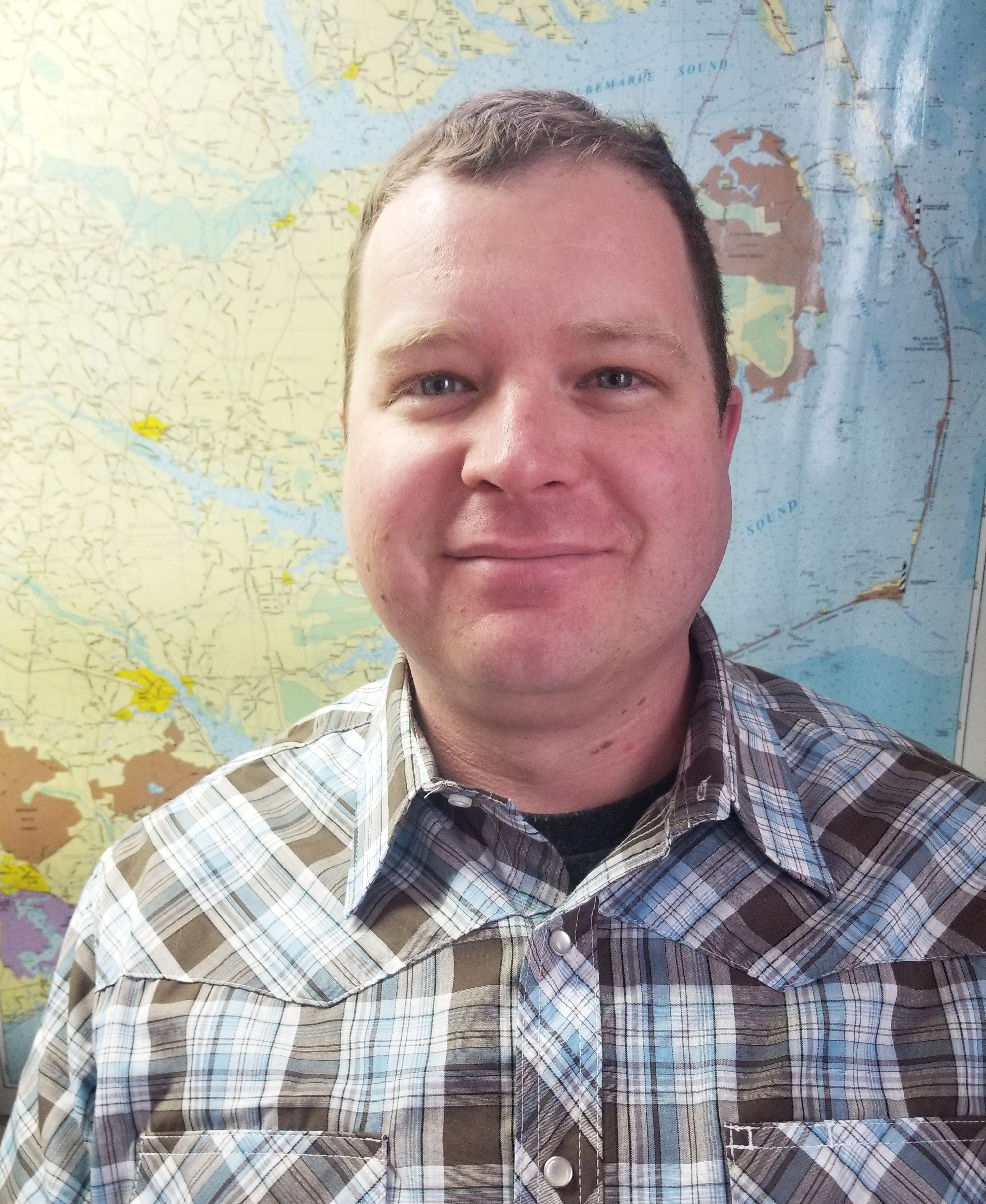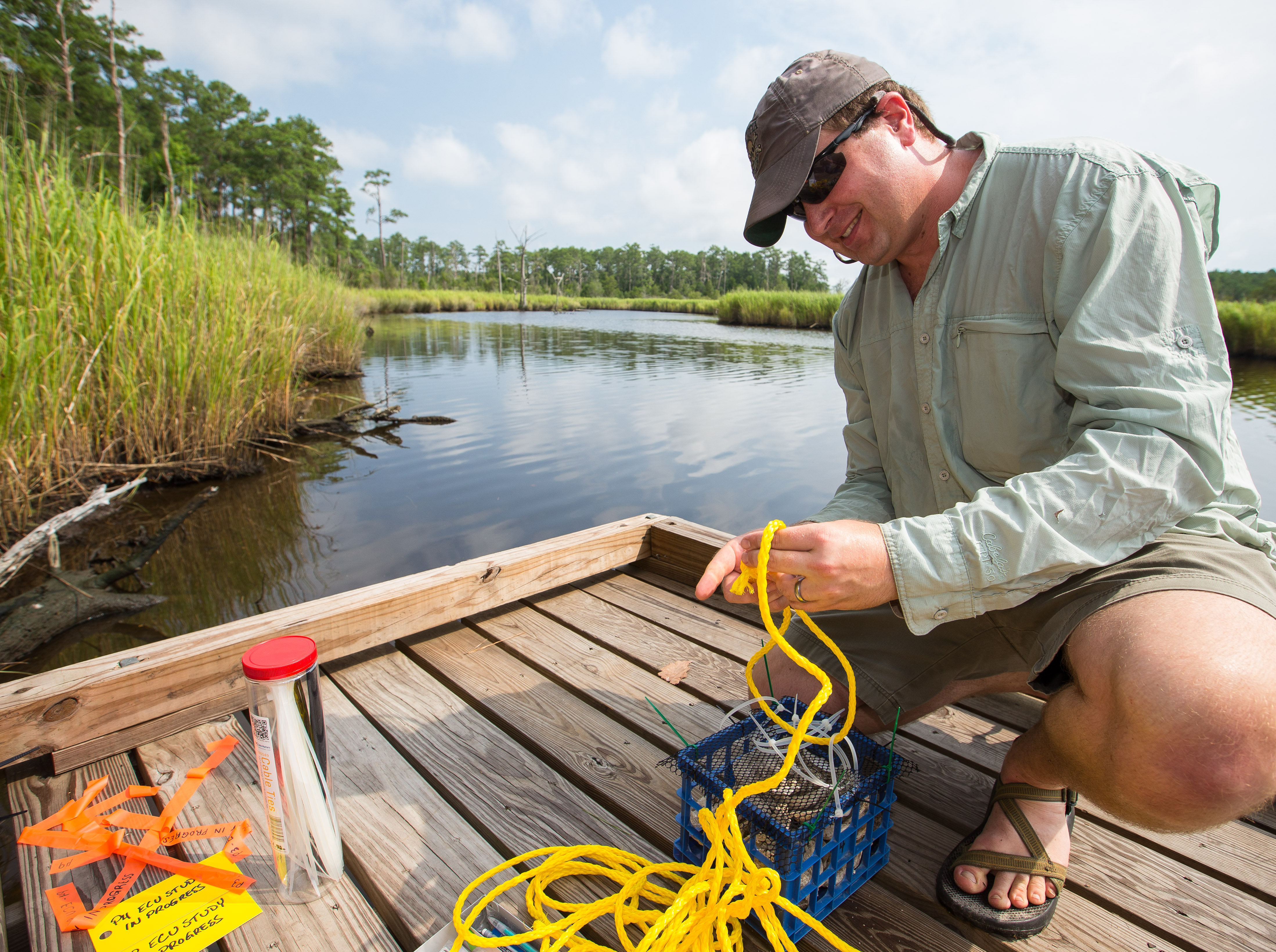Moore Named Coastal Research Fellow
FOR IMMEDIATE RELEASE
Contact:
John Fear, 919-515-9104, jmfear@ncsu.edu
Katie Mosher, 919-515-9069, katie_mosher@ncsu.edu
Chris Moore will be the 2018 North Carolina Coastal Research Fellow. North Carolina Sea Grant and the N.C. Coastal Reserve and National Estuarine Research Reserve Program jointly fund this fellowship.
Open to North Carolina-based graduate students, the fellowship provides funding for one year to conduct research within one or more of the 10 sites that constitute the reserve.
Moore is a doctoral student in marine ecology at East Carolina University. He studies parasites as novel indicators of biodiversity in restored coastal habitats. Moore’s adviser is April Blakeslee, also from ECU.

“My work investigates the correlation between parasites and overall ecosystem health,” Moore says. “Specifically, I’ll be using the diversity of parasites to evaluate the success of different shoreline restoration practices at restoring or enhancing biodiversity.”
Coastlines are increasingly subject to development that can change the biodiversity of an ecosystem. Currently, various organizations encourage “living shorelines” using natural materials to improve the resilience of coastal ecosystems. Moore will evaluate the effectiveness of these efforts.
“The Coastal Reserve has been a proponent of living shorelines, which are assumed to stabilize estuarine shorelines, minimize erosion, and enhance habitats,” says Brandon Puckett, research coordinator for the N.C. Reserve and National Estuarine Research Reserve.
“Chris’ work will compare habitat enhancement provided by different living shoreline materials, as well as the time scales over which living shorelines provide enhanced habitat. Results from Chris’ research will be useful for estuarine shoreline management, living shoreline permitting considerations and outreach efforts.”

Sea Grant staff are also excited about this opportunity.
“It’s a unique way to examine restored habitats,” says John Fear, Sea Grant deputy director. “Acres of habitat restored is one of our performance metrics under our healthy coastal ecosystems focus area. This work will help us better understand and respond to that metric.”
Gloria Putnam, Sea Grant coastal resources and communities specialist, adds, “This research can help make connections between land and aquatic health in ways we have not seen before in North Carolina.”
“I’m hopeful that what he learns will ultimately lead to new methods for comprehensively assessing the condition of coastal resources and which can inform decisions about how we modify and restore land along the coast,” she continues.
Moore, who is from Winston-Salem, N.C., holds a bachelor’s degree in classics from Davidson College, as well as a bachelor’s degree in biology from the University of Maryland, College Park.
To learn more about the North Carolina Coastal Research Fellowship, go to ncseagrant.ncsu.edu/fellowships.
##
North Carolina Sea Grant: Your link to research and resources for a healthier coast
- Categories:


